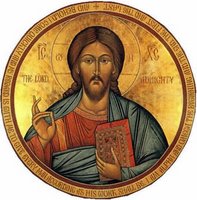
Barth holds the Person of Christ as the central category of all theological reflection and inquiry. With respect to election, instead of an abstract impersonal decree we have the eternal will of God to give himself in the incarnation of his Son. Hence the hollow, contextless decretum absolutum of Augustinianism takes on personhood in Christ and a relational context in the will of the Persons of the Trinity.
This is helpful in orienting predestination, which otherwise views the incarnation as an after-thought of man-oriented divine decrees. Barth's christocentricity ensures that Jesus Christ is not merely the remedy of the Fall, but the “Lamb slain before the foundation of the world.” The divine decree of election is none other than Immanuel, "God with us." Furthermore, that Christ is both the subject and object of election wipes away the abstract notion latent in some Augustinian systems (e.g., Reformed thought) that divides the Godhead by picturing Christ as the victim of the divine will. As the subject of election he is the electing God. As the object of election, he is the elect Man in whom all others find their election. Barth's christocentrism also clarifies so-called “double predestination” by presenting Christ as both the Reprobate and the Glorified One.
For the Catholic thinker, Barth's understanding of election as mediated through the community of faith in its witness to Christ in the world also opens up a consideration of the Church and the Sacraments (even if Barth did not take us there himself). The Catholic understands Baptism as the sacrament of our incorporation into the Body of Christ, who in his Person is the constituting means of election. The Church declares the individual’s election, but not all will avail or prevail themselves of it as they reject or defect from the mediation of Christ.
Until next time.

3 comments:
One of the issues in discussion election is the problem that it has systematically been reduced to mean those who are predestined to everlasting life in eternity. But that is not how scripture often uses the term election. The Apostle Paul himself speaks to the entire Church in Ephesus as the elect and chosen before the foundation of the world. In the Old Covenant, God spoke of Israel as the elect in the same way. All baptised into Christ are the elect of God and called to live by and in that incorporation into Christ. The scriptures read covenantally it seems rather that through the lenses of the eternal decree. Reformed theology has missed the point on this it seems.
They were following Augustine's lead in this, Jeff, though obviously the Reformed took human speculation on the eternal decrees to new heights (or depths as the case may be). Barth is the important corrective here in proclaiming Christ as God's eternal decree (i.e., ever-present and active will) rather than merely the means to the end of a man-oriented divine decree.
Thanks Dan for these posts on election. As one who graduated from RTS (Marriage & Family Therapy) but was never a convinced Calvinist, you are introducing me to a brand new and exciting way of thinking about election, a way that seems to transcend the whole Calvinist-Arminian debate. Please post more on election.
Post a Comment